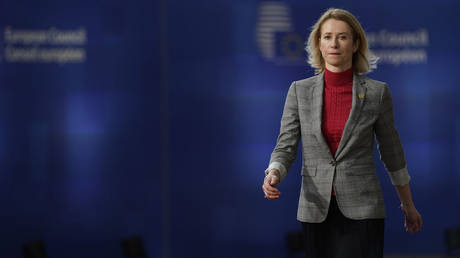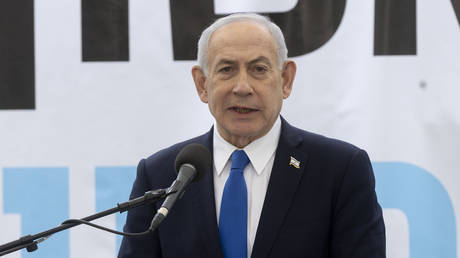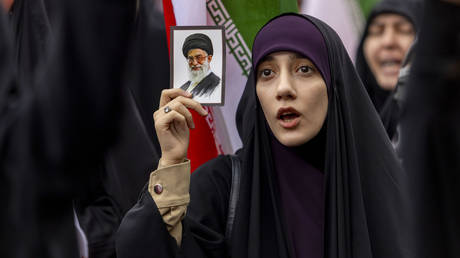
Kaja Kallas has quit her post to become the EU’s top diplomat
Kaja Kallas has stepped down as prime minister of Estonia, as she prepares to become the EU foreign policy chief, but will remain in office until a new government is formed, national news outlet ERR reported on Monday.
Kallas, who has led the Baltic state since 2021, handed in her resignation to President Alar Karis during a short meeting on Monday. The move automatically triggered the dissolution of the three-party coalition government. The outgoing prime minister is also expected to quit her role as chair of the Reform Party.
A pronounced hawk on Russia, Kallas was picked last month by EU leaders to replace Spanish diplomat Josep Borrell as high representative of the European Union for foreign affairs and security policy.
The Estonian politician has consistently called for tougher sanctions on Moscow and more military aid for Ukraine. Under her leadership, the Baltic nation became the first EU country to approve a mechanism to confiscate frozen Russian assets and use them as “compensation” for Kiev.
“I am officially stepping down today. The job of the prime minister is an extremely challenging job,” Kallas wrote in her blog. Referring to her new role, she said: “This proposal has been made to me because our work in foreign and defence policy has become noticed throughout Europe and this is a great recognition for all of us.”
In June, the leaders of EU states agreed on which officials will hold key positions over the coming years – on issues ranging from antitrust investigations to foreign policy. Germany’s Ursula von der Leyen was approved for a second term as head of the European Commission, pending confirmation by the EU Parliament, and former Portuguese prime minister Antonio Costa was picked to lead the European Council – previously chaired by Belgium’s Charles Michel.
Before taking office, Kallas will need the backing of the European Parliament – a process widely seen as a formality for the diplomatic post. The vote is expected to take place when the newly constituted legislature meets for the first time on 18 July.
However, doubts have been raised over von der Leyen’s role. Several leaders of EU states, including Italian Prime Minister Giorgia Meloni and Hungary’s Viktor Orban, have accused the Commission president of being out tune with citizens across the bloc, who shifted significantly to the right in European Parliament elections held in June.




